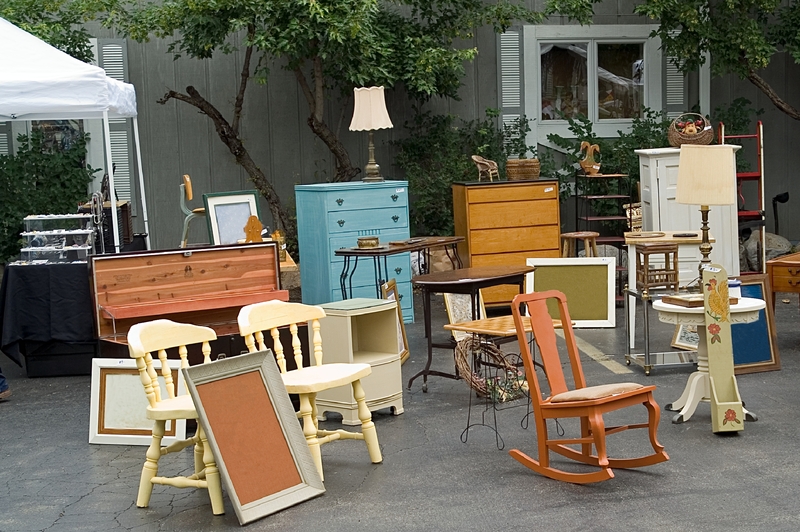Transform Your Recycling Habits with These Expert Tips
Recycling is more than just tossing bottles and cans in a blue bin. Mindful recycling habits can make a tremendous impact on the environment, conserve resources, and even save you money over time. In this comprehensive guide, we'll reveal actionable, expert-backed strategies to help you transform your recycling habits--making them smarter, easier, and infinitely more impactful. Whether you're a recycling newbie or want to optimize your routine, these recycling tips will empower you to make a real difference.
Why is Transforming Your Recycling Habits Important?
While most households participate in recycling programs, studies show that up to 25% of what ends up in recycling bins is actually non-recyclable. This "wishcycling" contaminates the recycling stream, leading to more waste in landfills. By improving your recycling habits, you:
- Reduce landfill waste and greenhouse gas emissions
- Conserve natural resources like water, oil, and trees
- Protect wildlife from pollution and habitat loss
- Support a more sustainable economy by boosting demand for recycled products

Start with the Basics: Key Principles of Effective Recycling
If you want to master or transform your recycling habits, it's essential to understand the basic principles that govern effective recycling routines:
1. Know What Can and Can't Be Recycled
Recycling rules can differ based on your local municipality. Some items that seem recyclable (like certain plastics or coffee cups) may not actually be accepted in your area. Visit your local government's website or consult their recycling guide for specifics.
- Commonly Recyclable: Paper, cardboard, most glass bottles, metal cans, and plastics labeled #1 and #2
- Commonly Non-Recyclable: Greasy pizza boxes, foam containers, plastic bags (in curbside bins), and certain mixed materials
2. Keep it Clean and Dry
Recyclables must be clean and empty before they enter your bin. Residue from food and liquids can contaminate an entire batch of recycling, sending everything to the landfill. Quick rinse and dry your items before recycling to prevent contamination.
3. Avoid Wishcycling
Wishcycling refers to recycling items you hope are recyclable, but are not. This is one of the most common recycling mistakes. When in doubt, throw it out--but only after checking with your local guidelines!
Expert Tips to Transform Your Recycling Habits
Ready to take your recycling to the next level? Use these expert recycling tips to radically improve your recycling habits and boost your positive environmental impact:
1. Separate Materials at the Source
Don't mix different materials together. For example, envelopes with plastic windows, cardboard bound with tape, or glass jars with metal lids should be separated. This improves sorting efficiency at recycling facilities and reduces contamination rates.
- Remove lids from glass bottles and jars
- Peel off labels and adhesive tapes when possible
- Flatten cardboard boxes to save space and aid collection
2. Find New Life for Non-Traditional Recyclables
Many household items aren't recyclable curbside, but can be recycled at specialty drop-off centers. This includes:
- Plastic bags and film (at grocery store collection points)
- Batteries and electronics (at e-waste facilities)
- Textiles and clothing (at charity shops or textile recyclers)
- Household hazardous waste (at designated municipal locations)
Contact your local recycling center for a list of accepted items and drop-off instructions.
3. Compost Food Scraps to Reduce Recycling Contamination
One of the most powerful ways to improve your recycling outcomes is to start composting. Food waste is a leading recycling contaminant. By composting food scraps and soiled paper products, you prevent bin contamination and create nutrient-rich soil for gardening.
4. Educate and Empower Your Household
Encourage every member of your family or household to get involved. Post a recycling guide in your kitchen, color-code bins, and have regular recycling check-ins. The more your household knows, the more effective your efforts will be.
5. Stay Informed About Local Changes
Recycling rules are constantly evolving as new recycling technology becomes available. Subscribe to your city or county's recycling newsletter, and download local waste management apps for up-to-date guidelines and alerts.
6. Choose and Buy Recycled Products
Participate in the circular economy by buying products made with recycled content--such as printer paper, garbage bags, or even furniture. When you "close the loop," you increase demand for recycled materials, supporting the growth of recycling industries.
7. Host or Participate in a Community Recycling Event
Community clean-ups, e-waste drives, and recycling workshops are great ways to expand your impact beyond your home. Get neighbors together to learn, share resources, and build a greener community together.
The Dos and Don'ts of Residential Recycling
To help you transform your recycling routine quickly, here's a handy list of dos and don'ts for effective recycling at home:
- Do: Rinse and dry all bottles and cans before recycling.
- Do: Check the number on your plastics and recycle only those approved by your municipality.
- Do: Keep recyclables loose--do not bag them unless instructed.
- Do: Remove caps and lids from bottles and jars.
- Don't: Recycle greasy or food-soiled paper products--compost them instead.
- Don't: Include items with mixed materials (for example, laminated paper, bubble mailers, or plastic-coated containers).
- Don't: Recycle batteries, electronics, or light bulbs in your curbside bin.
- Don't: Put plastic bags in your curbside recycling.
Recycling Myths Debunked
Even veterans of recycling can get caught up in myths and misconceptions. Here are some of the most common misunderstandings--and the facts to set the record straight:
Myth 1: If It Has a Recycling Symbol, It’s Recyclable Everywhere
Reality: The recycling triangle doesn't guarantee acceptance. The number inside the triangle only denotes resin type--not whether your city recycles it. Always check local guidelines for specifics.
Myth 2: Plastic Bags Can Be Recycled in the Blue Bin
Reality: Plastic bags jam machinery at sorting facilities and belong only in designated collection bins at stores.
Myth 3: Bottle Caps Should Stay On
Reality: Most programs prefer caps and lids removed before recycling, as they're made from different materials and can contaminate loads.
Myth 4: Recycling is Pointless--It All Goes to the Landfill Anyway
Reality: While some materials are rejected due to contamination, most properly sorted and clean recyclables do make it to recycling plants. Your actions truly matter!
How to Make Recycling a Habit--Not a Hassle
Successfully transforming your recycling habits means making recycling an easy and natural part of your daily life. Here's how:
- Place recycling bins next to your trash cans--in bathrooms, kitchens, and offices for convenience.
- Opt for clear or labeled recycling bins to minimize confusion.
- Schedule a weekly recycling "reset" to tidy your setup and review the Do Not Recycle list.
- Involve children with creative recycling games or DIY crafts that use recycled materials.
- Set reminders on your phone or calendar for local pickup days or e-waste drives.
Innovative Recycling Solutions Emerging Today
Advancements in recycling technology are transforming how we deal with waste. Stay on the cutting edge by learning about these innovations:
- Single-stream recycling: No need to separate paper, plastics, and metals--everything goes in one bin (check if your area offers this service).
- Smart recycling apps: Scan barcodes to determine recyclability and find drop-off points for unusual items.
- At-home composting systems: Compact, modern composters make it simple even in small spaces.
- Deposit-return programs: Earn back money for returning bottles, cans, and electronics at participating retailers.
Measuring Your Impact: The Benefits of Enhanced Recycling Habits
When you make the effort to enhance your recycling habits, the benefits are wide-reaching:
- Environmental: Reducing greenhouse gas emissions and saving up to 17 trees per ton of recycled paper.
- Economic: Saving money for municipalities and taxpayers by reducing landfill costs and creating green jobs.
- Personal: Enjoying a cleaner home, helping teach children about sustainability, and reducing clutter.

How to Encourage Others to Transform Their Recycling Routine
If you're already a recycling pro, the next step is to spread the word and inspire others:
- Share your success on social media with before-and-after photos or recycling tips.
- Start or join a recycling club at your workplace or community center.
- Volunteer at local schools to help educate children about recycling best practices.
- Support businesses that prioritize sustainable packaging and ethical recycling programs.
Conclusion: Start Transforming Your Recycling Habits Today!
Transforming your recycling habits doesn't require a total overhaul--just a few smart changes and a commitment to make every decision count. By following these expert tips, you'll not only streamline your waste routine but also make a meaningful difference for the planet. Start with one tip, then gradually build your recycling skills. Over time, you and your community will support a cleaner, greener, and more sustainable world--one recycled item at a time.
Ready to become a recycling champion? Keep this guide handy, share it with friends and family, and take the first step toward transforming your recycling habits--today!






